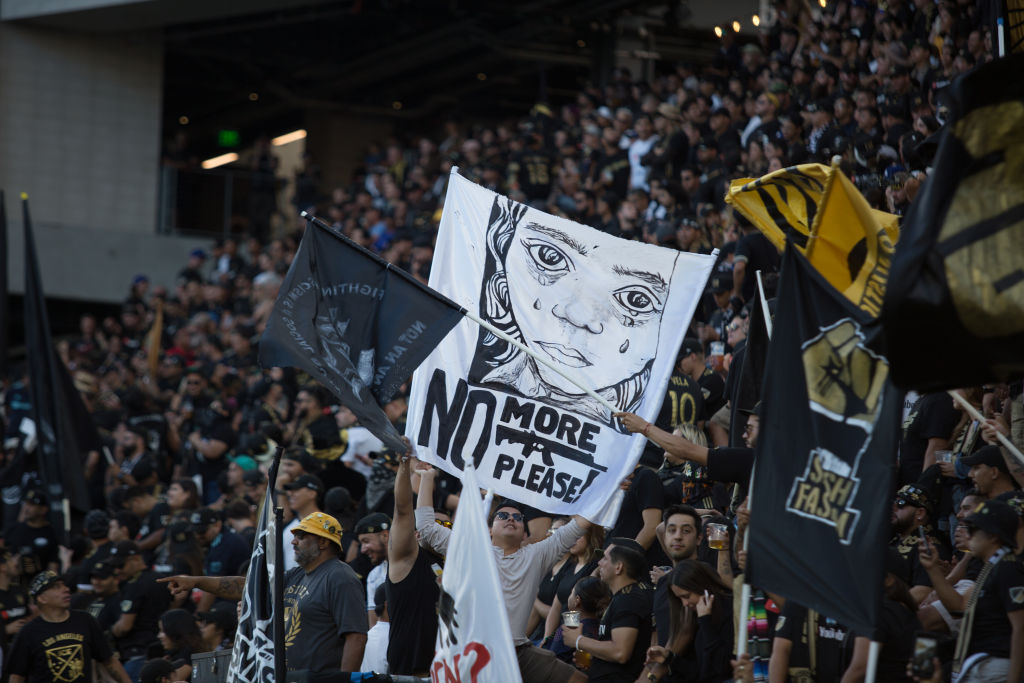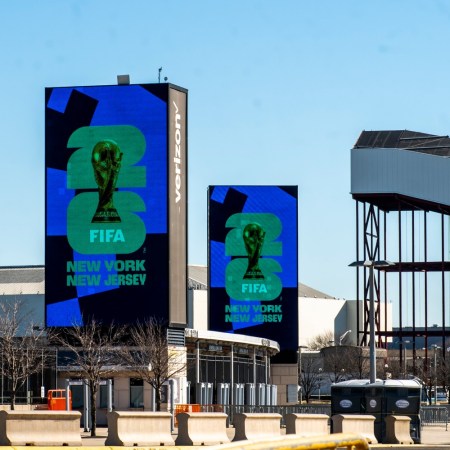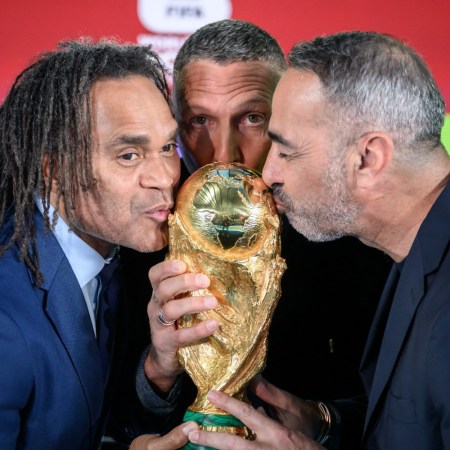To say that sports and politics are two discrete entities and never the twain shall meet is naive. Just ask Colin Kaepernick or Megan Rapinoe.
For the people who run professional leagues, finding a way to satisfy players and fans — all of whom may have radically different takes on all things political — can be a herculean task. But what happens when a league begins pushing back against its most vocal supporters?
This is the quandary in which Major League Soccer finds itself in 2019. To be fair, there have been some instances of this in the past, including one league effort in 2013 to shut down a profane chant shouted by supporters groups. The situation in 2019 is far more serious, though, and it’s begun to overlap with an outcry over fascism taking place across the country.
Last year, a group of New York City Football Club fans noticed that a few prominent figures from the alt-right Proud Boys organization were showing up in their stadium. The presence of far-right elements in soccer culture is not without precedent: it’s something that alarmed Jay Caspian Kang in a 2016 piece on American soccer, and efforts to prevent inroads by extremists led to the formation of at least one supporters group in the league’s early days. (Full disclosure: I’m a member of Empire Supporters Club.)
But while MLS has players and fans from across the political spectrum, certain qualities mark it as one of the more progressive of top-tier professional sports leagues in the country. MLS is one of two men’s leagues to have an openly gay player, and Pride flags are a common sight at stadiums around the league, but many teams also hold military appreciation nights. The overall atmosphere is one of inclusiveness.
But the threat of fascism, and the rise of anti-fascist protests, has exposed fault lines in the league’s policies about political speech. An update to the league’s Fan Code of Conduct before the season began cited political language as one of many types of displays that would be deemed unacceptable. Earlier this year, a banner reading “Anti-Fascist, Anti-Racist, Always Seattle” was taken by security officers at a Seattle Sounders/Vancouver Whitecaps game. And as a 2017 article by Leander Schaerlaeckens notes, displays of anti-fascist imagery have been on the rise at MLS games since Donald Trump’s inauguration.
The most contentious battles over political speech at MLS games have come via the presence of the Iron Front symbol. The symbol, which has roots in European social democratic movements (including opposition to the Nazi party in 1930s Germany), has come into favor with many anti-fascist activists in the United States. And in recent weeks, the Iron Front has been at the center of two high-profile controversies around the league.
Seattle Sounders supporters group Emerald City Supporters flew a massive Iron Front flag in the Sounders’ colors on July 21, which initially led to pushback from the team’s management; a few days later, the team’s ownership group reversed course somewhat. The issue seems in part to be one of inconsistency: as Seattle Times reporter Jayda Evans described it, “based on discussions with ECS members, the controversy is not only the association with far-right groups but what MLS deems political appears to be inconsistent.”
Last weekend, a protest from Atlanta United supporters group Resurgence involved members of the group displaying signs opposing fascism and calling for an end to gun violence. Dirty South Soccer’s Sam Jones writes that “according to an Atlanta United spokesperson, four fans were ejected from the match for noncompliance and two more were ejected for their ‘combative’ behavior with stadium staff.” For two of them, that resulted in a year-long ban from Atlanta United home games.
The latest development in this controversy occurred on Tuesday, when the MLS Players Association tweeted a statement in favor of supporters’ political expression. It concluded with a statement that lacked any ambiguity: “Our supporters’ groups are the backbone of our league and have our full support.”
MLS commissioner Don Garber’s attempts to find a balance here have not inspired much confidence. In an interview with ESPN’s Jeff Carlisle, Garber was asked about why, for example, a Pride flag was acceptable but a flag opposed to fascism was not. “A rainbow flag is not a political statement. In this case the Iron Front is a political organization,” Garber said. When pressed by Carlisle about whether a Make America Great Again hat would be acceptable, Garber’s response was inconclusive: “It’s hard for me to respond to those kinds of things. I don’t want to get engaged with that.”
“We basically have created a policy that takes any decision-making off the table,” Garber said earlier in the interview. But there are already plenty of political moments occurring in MLS. This is, after all, a league in which Orlando City SC’s stadium features a memorial to those killed in the Pulse nightclub shooting, and in which the Philadelphia Union’s Alejandro Bedoya used the moment after scoring a goal to call on lawmakers to take action to stop gun violence.
Not every team has embraced the nominally apolitical dictates. The Philadelphia Union tweeted out an image of Alejandro Bedoya proudly signing a display from supporters group the Sons of Ben featuring a riff on his anti-gun violence statement.
On one hand, Major League Soccer’s attempts to find a middle ground for supporters of differing political beliefs is understandable. Unfortunately for the league, 2019 is not a year in which many things aren’t political — and in trying to set limits on political displays, there’s a greater sense of the arbitrary than anything else. Until the League can settle on a policy that satisfies all sides — tricky though that goal may be — it runs the risk of alienating both players and supporters at a moment when its influence and popularity has never been greater.
The Charge will help you move better, think clearer and stay in the game longer. Subscribe to our wellness newsletter today.
























